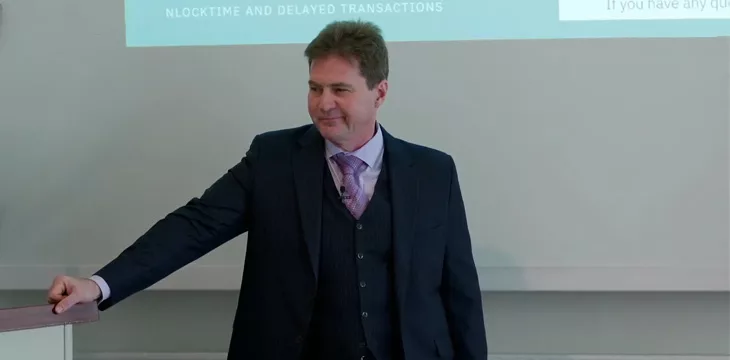|
Getting your Trinity Audio player ready...
|
Do you want Bitcoin to be the “money of the future” or a speculative trading asset? It can’t be useful as both. Likewise, you don’t want too much Bitcoin locked away in the future or promised payments. That’s where the efficiency of nLocktime and payment channels come in, in session 2 of the latest The Bitcoin Masterclasses series with Dr. Craig S. Wright.
Why it’s bad to lock away spending value
You get some pretty big numbers looking at how much money moves around in the global economy. Cash transactions alone (N1 base money and below) averaged 163.9 million per second in 2022, peaking at 2.7 million per second—worth about US$17 trillion. Cash is but a tiny percentage of all transactions, which were closer to 21 trillion per second.
Dr. Wright points out that Bitcoin “going to the moon” (i.e., dramatically rising in market price) makes it less useful. If a single satoshi unit is worth US$10,000, “you won’t be buying a coffee with that sat.” Price speculation causes Bitcoin value to be “locked away” rather than used, which in turn would (hypothetically) remove a huge amount of activity from the global economy if Bitcoin were to replace cash.
Money sitting on-chain isn’t doing anything either—for example, in locked future payments on the BTC network (known as CLTV, or “CheckLockTimeVerify“). The BSV protocol, as usual, has far better ways to do it.
Thinking you’re rich because you have a lump of gold is a communist idea because real wealth comes from your ability to buy goods and services with something more liquid. “Trotsky would love them … crypto-libertarians my arse,” he says of BTC fans and those who’d prefer to keep spending value locked up like this. Even (so-called) communist China is smart enough to realize this, favoring mercantilism and trade.
Payment channels
“Money in circulation is wealth.” We need to construct payment channels that are secure and in a way that money can still move around.
Dr. Wright gives the example of a possible payment channel for a car, where ownership is divided into tokenized “shares.” Participants in the channel could include the seller and owner, as well as the financier, an insurance company, and a service mechanic. Various conditionals would be written into the contract that determines payments and their amounts, which could change depending on events in the real world. The ultimate goal could be a buyer’s complete ownership of all shares, or it could be a leasing arrangement, but times and amounts can be adjusted along the way.
This is just one example, and you may or may not like the idea—but it’s simply a demonstration of how complex contracts can be automated and applied to any situation. Best of all, it doesn’t need to “lock away” monetary value in pre-payments (like CLTV would).
We can use nLocktime to “structure things without linking you on-chain.” We want to set up a variety of (financial) states, each of which changes conditions and amounts and would include completed payments along the way, leading towards the final desired state. Payments can also be automated, meaning they don’t necessarily require individual approvals or signings.
He also makes the interesting point that Bitcoin contracts can borrow some ideas from older “alternate finance” traditions, such as Islamic finance, and their various contractual/conditional features.
The complexities in these arrangements can be confusing to the average person, but the fact is our lives are full of such complicated arrangements already. It’s part of living in the modern world and a functioning society. As Dr. Wright says, Bitcoin is not designed for the post-apocalypse and probably wouldn’t work as well in that situation as some think. Instead, it’s supposed to hand off that complexity to developers and automation, ultimately making life easier.
Watch: The Bitcoin Masterclasses on Accounting & Mapping Transactions On-chain

 03-01-2026
03-01-2026 




